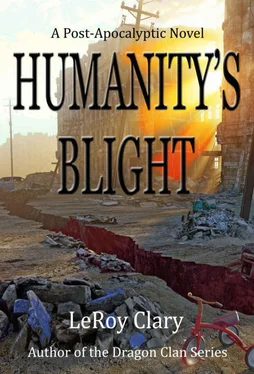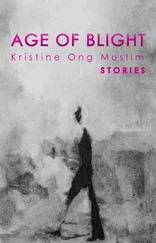After adjusting the wheel to turn the boat and catch the wind in the jib as I let it back out. The boat reacted as if I’d hit the throttle on the engine. The exhilarating feeling was one of total success. With nothing but the breeze that made a few small whitecaps on the water propelled us faster than the engine. I was a sailor. Sort of.
I skipped the complicated or confusing pages and went to the meat of the lessons. I didn’t need the details, just the main information. As I studied how the wind caught a jib sail and could carry a boat almost directly into the wind, odd music sounded. I stood up and found no other boats nearby.
The door to the cabin opened and Sue stuck her head out as the strange sounds became louder with the opening of the door. “Can you help me?”
The music was music unlike any I’d ever heard. It was also filled with wavering static. I let the wheel go, felt the boat swerve and stop again, and followed her inside. The music was louder, with flutes, odd twangs, and other alien sounds among the hisses and scratches. It sounded Japanese or Chinese. Asian, of one kind or another.
She went to the desk and gauges and pointed to a radio mounted to the wall. “The only music I can get is that crap. It’s on all the channels that work. Either that or gibberish talk.”
Stunned, I stood aside as she spun a large dial and moved from one static-filled station to another. She was on the AM band, but only got static or Asian talking and music. That was odd because American stations were much closer. The radio dial said, “short wave” and I’d heard of that phrase but didn’t know exactly what it meant except it was used in emergencies. What I did know, was the AM radio frequencies on the dial were what should be American stations if there were others broadcasting.
The idea that the radio picked up stations halfway around the world suggested that there were no working stations in America. However, if that was true, there shouldn’t be stations in Asia, either. Not if they also faced the same flu that had killed so many of us.
A chill worked its way up my back. That last thought was cold. If radio stations in Asia still broadcast, did that mean they were immune to the flu? Or, was I misreading everything?
“Can’t you find a real station for us to listen to? Even if it has only country music?” Sue whined.
While music hadn’t ever been important to me, the music we heard suddenly felt very significant. I didn’t want to alarm Sue or jump to incorrect conclusions. “Later. Finish with the salmon and then play with the radio. Move the dial slowly and see if you can find any American stations. Maybe on another band.”
I went out onto the deck, took hold of the wheel, my hands shaking. The men who hunted us at the mining tunnels had scared me, the motorcycle gang in Darrington had done the same. Even the men who attacked the old man’s house at Priest Point had scared me. They were familiar foes in one way or another. None of the past instances gave me the kind of fear that listening to the strange music on the radio did.
The Internet had said the flu was universal. I’d believed that.
Now I didn’t.
What about French, German, or Italian? Were others broadcasting?
With trembling hands, I turned the wheel and let the jib find the wind again. It filled and pulled us ahead. But my mind was not on the sail or on the boat. It was across an ocean where strange-sounding music was being transmitted.
How was it being transmitted if many people of their people had died of the flu, and their power grid failed as ours had? If they had died by the hundreds of millions, who were the radio broadcasts being aimed at? It didn’t make sense. Automation? Could the broadcasts be recorded, the power from batteries that hadn’t yet run down?
A sailboat with a white sail emerged from the clutter of the coastline of Whidbey Island and It sailed parallel to us. That in itself was not too surprising. We were not the only ones to realize the importance of a sailboat as a floating home for the future or the relative safety of the San Juan Islands. What was upsetting was that it didn’t pull away or outpace us.
Any sailor in any boat should have easily outrun us and our jib. The fact that it hadn’t concerned me as I soul-searched to find a possible reason. It sailed no faster or slower as if it was waiting for dark, so it could sneak up and attack us.
“Sue, have you seen a spyglass or telescope down there?”
“Binoculars. Will they do?” She emerged with them in hand. They were larger than any I’d ever seen. When I put them to my eyes and focused, the white sailboat leaped into view. There were only three people on deck. They were not acting strange and I saw no weapons.
All of that meant nothing.
Sue went below again, off on another pursuit of her own. It seemed we’d divided the ship to above decks and below. Her domain was keeping her busy.
We had several miles of nothing but open water to our left. I expanded the view on the GPS and found we were heading for the edge of the Salish Sea, a name I hadn’t known existed. What it did, was go all the way from our location out to the Pacific Ocean, which I estimated was sixty miles away.
My plan had been to continue sailing north to Orcas, Lopez, and San Juan Islands, where I hoped to find a safe place to anchor. There were many inlets and smaller islands. The sailboat on my right still worried me. I hit the button to roll in the jib slightly, reducing the amount of sail and slowing us a little as a test to see if the other boat slowed. Then I slowed us again, a half-hour later. We were barely making progress.
The other boat remained in the same relative location, right off our side, the same distance away. I’d slowed again, taking in nearly half our remaining sail so we only had forward progress enough to steer. I then let the jib full out. All of it. The brisk breeze scooted us ahead like a dry leaf on a road in the fall.
Either they were following us, or they were not. What had happened so far might be a coincidence or have another explanation. The abrupt change in our speed would tell me for sure. It made no difference in some ways because I couldn’t outrun them. My knowledge of sailing was only enough to go a few miles an hour and be satisfied. We might have to defend ourselves with our guns.
The other boat obviously knew where we were. We might even show up on their radar, so besides outrunning us, they would know right where we were—even after dark. We wouldn’t know where it was. The one thing that became evident was that it was lurking and watching as it increased its speed to match ours again. Waiting for something.
Waiting for darkness? That seemed the most likely answer. But how did they know we didn’t have radar and might evade them in the dark? Maybe Truant did have radar. We had GPS, so maybe we also had radar and I hadn’t found it. But the point was that they didn’t know. Those people on the other boat couldn’t know.
They were too far away to see how many people we had on our boat, and we couldn’t tell how many were on it. Maybe we had a platoon of sharpshooters to repel boarders. Or two or three expert snipers. The fact was, they knew about as much of us and our capabilities as we knew about them.
A flash from an old army movie came to mind. The hero said something like, “You never pick a fight you’re going to lose, and it’s stupid to enter a fight when things are even. Even means you’re going to lose half your battles.”
He was right. You choose to fight only when you believe the odds are in your favor. For some reason, that sailboat had the belief that if they came for us, they would win. I chose to believe they were right.
All we had to do was avoid them. Not trust them. It didn’t make sense. Maybe they were looking to join up with us and be friends. If so, they were not convincing me to be friendly.
Читать дальше












